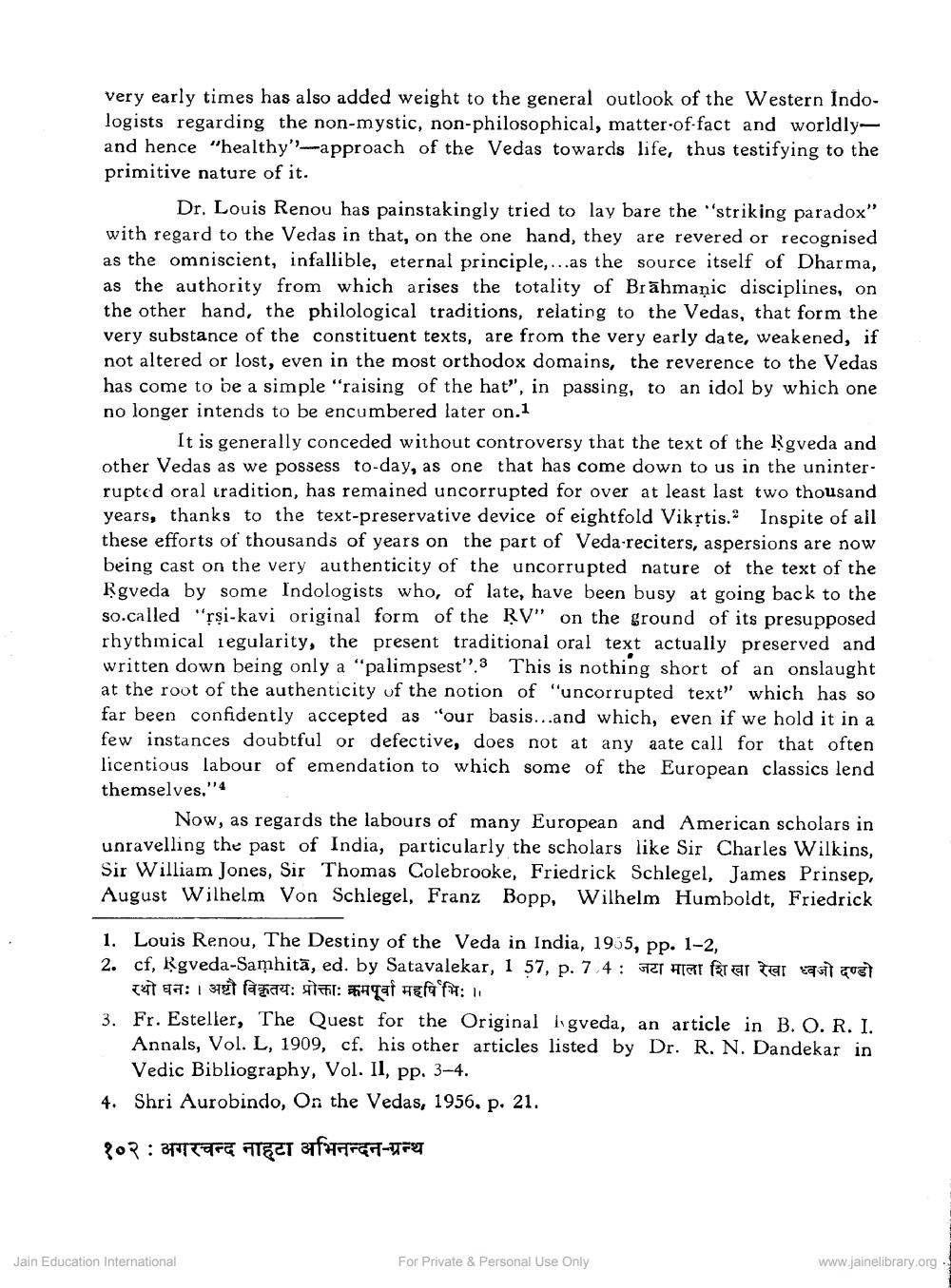________________
very early times has also added weight to the general outlook of the Western Indologists regarding the non-mystic, non-philosophical, matter-of-fact and worldlyand hence "healthy"-approach of the Vedas towards life, thus testifying to the primitive nature of it.
Dr. Louis Renou has painstakingly tried to lay bare the "striking paradox" with regard to the Vedas in that, on the one hand, they are revered or recognised as the omniscient, infallible, eternal principle,...as the source itself of Dharma, as the authority from which arises the totality of Brahmanic disciplines, on the other hand, the philological traditions, relating to the Vedas, that form the very substance of the constituent texts, are from the very early date, weakened, if not altered or lost, even in the most orthodox domains, the reverence to the Vedas has come to be a simple "raising of the hat", in passing, to an idol by which one no longer intends to be encumbered later on.1
It is generally conceded without controversy that the text of the Rgveda and other Vedas as we possess to-day, as one that has come down to us in the uninterrupted oral tradition, has remained uncorrupted for over at least last two thousand years, thanks to the text-preservative device of eightfold Vikṛtis. Inspite of all these efforts of thousands of years on the part of Veda-reciters, aspersions are now being cast on the very authenticity of the uncorrupted nature of the text of the Rgveda by some Indologists who, of late, have been busy at going back to the so-called "rsi-kavi original form of the RV" on the ground of its presupposed rhythmical regularity, the present traditional oral text actually preserved and written down being only a "palimpsest". This is nothing short of an onslaught at the root of the authenticity of the notion of "uncorrupted text" which has so far been confidently accepted as "our basis...and which, even if we hold it in a few instances doubtful or defective, does not at any aate call for that often licentious labour of emendation to which some of the European classics lend themselves."4
Now, as regards the labours of many European and American scholars in unravelling the past of India, particularly the scholars like Sir Charles Wilkins, Sir William Jones, Sir Thomas Colebrooke, Friedrick Schlegel, James Prinsep, August Wilhelm Von Schlegel, Franz Bopp, Wilhelm Humboldt, Friedrick
1. Louis Renou, The Destiny of the Veda in India, 1955, pp. 1-2,
2. cf, Bgveda-Samhita, ed. by Satavalekar, 1 57, p. 7.4: a
cât na: 1 mét fagar: site: muqai neft'fa: 11
ferrer wat gust
3. Fr. Esteller, The Quest for the Original
gveda, an article in B. O. R. I.
Annals, Vol. L, 1909, cf. his other articles listed by Dr. R. N. Dandekar in Vedic Bibliography, Vol. II, pp. 3-4.
4. Shri Aurobindo, On the Vedas, 1956, p. 21.
१०२ : अगरचन्द नाहटा अभिनन्दन ग्रन्थ
Jain Education International
For Private & Personal Use Only
www.jainelibrary.org




